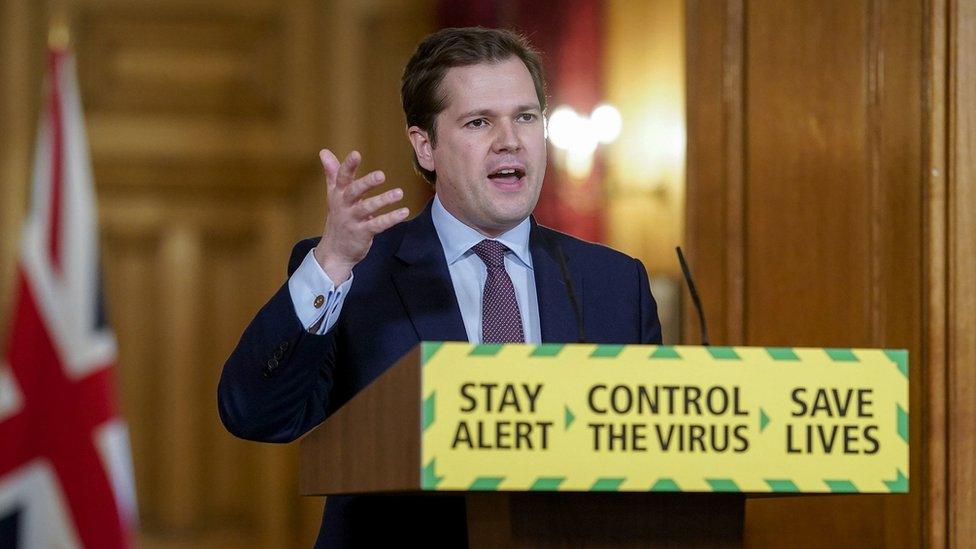Coronavirus: What might swimming pools be like after lockdown?
- Published
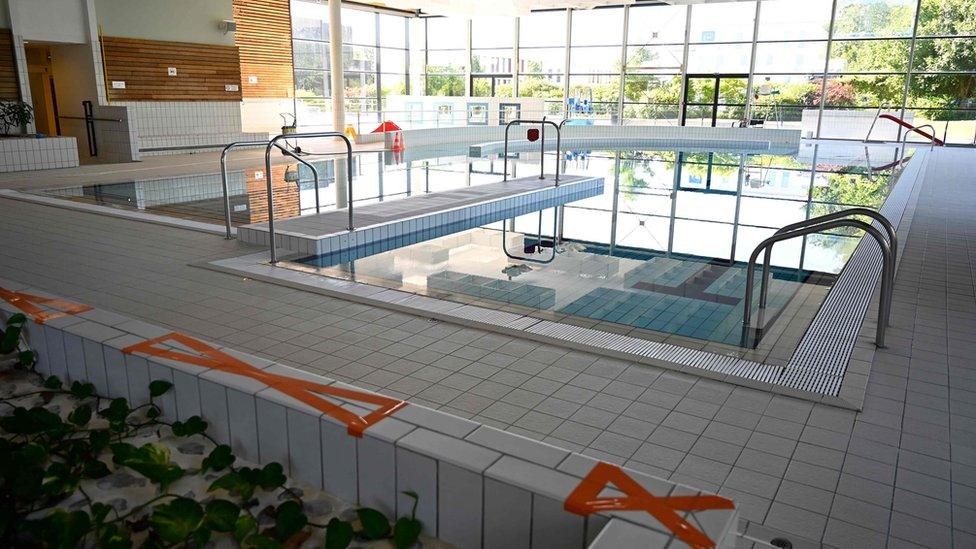
Swimmers may have to arrive in their costumes and the number of people in lanes be limited when pools reopen, to allow for social distancing.
For the time being indoor and outdoor pools must remain shut, despite the easing of some lockdown restrictions, external,
It's thought chlorine in swimming pools will kill coronavirus but Swim England has warned a "stricter regime" will still be needed when they do reopen.
The body has warned 500 pools in England could close permanently.
Pools in England cannot reopen before 4 July under the government's current plan for lifting lockdown restrictions and the advice also says people should not swim at the beach without a lifeguard present.
In Scotland, indoor leisure facilities will not be able to open until the country moves to phase three of its plan for easing the lockdown and they will be subject to physical distancing and hygiene measures.
A provisional date for reopening pools is also yet to be given in Wales and Northern Ireland, where indoor leisure centres will remain closed until step four of its lockdown plan.

A SIMPLE GUIDE: How do I protect myself?
IMPACT: What the virus does to the body
RECOVERY: How long does it take?
LOCKDOWN: How can we lift restrictions?
ENDGAME: How do we get out of this mess?

But as the weather has warmed up, people have headed to beaches, with three people seriously injured while jumping off a cliff into the sea at Durdle Door in Dorset on Saturday.
In London, the Serpentine Lido in Hyde Park was forced to close after attempting to reopen last week because it became too crowded.
Chlorinated water should kill the virus, but preventing it from spreading in changing rooms and other areas around pools remains a concern.
Swim England chief executive Jane Nickerson said guidance was still being finalised but that people might be asked not to use changing rooms, and pools could be told to limit how many people could be in the water at a time.
She told The Times, external people might have to arrive "beach ready" in their costumes.
Olympic gold-medallist Duncan Goodhew, who is president of the Swimathon charity, told Radio 4's Today programme there were 5,000 public pools in England, 10% of which might not be able to reopen with social-distancing measures as they were "old, inefficient and expensive to run".
He said: "A little like a restaurant, it becomes very difficult economically to make it work because you're just not getting the volume of people through."
Financial challenges
Swim England has called for financial support from the government to help ensure pools are financially viable as the lockdown eases.
Ms Nickerson said: "We know there will be major financial challenges for pool operators, all of whom saw their income disappear overnight, and who will be faced with the dilemma of opening pools against the backdrop of less footfall and increased environmental costs."
Mr Goodhew, who won gold at 100m breaststroke in Moscow in 1980, added: "It's really important the pools open because there are many, many people out there, some people who are disabled or have bad hips, etc, who cannot do any other exercise.
"From a point of view of quality of life, we've got to get them open."
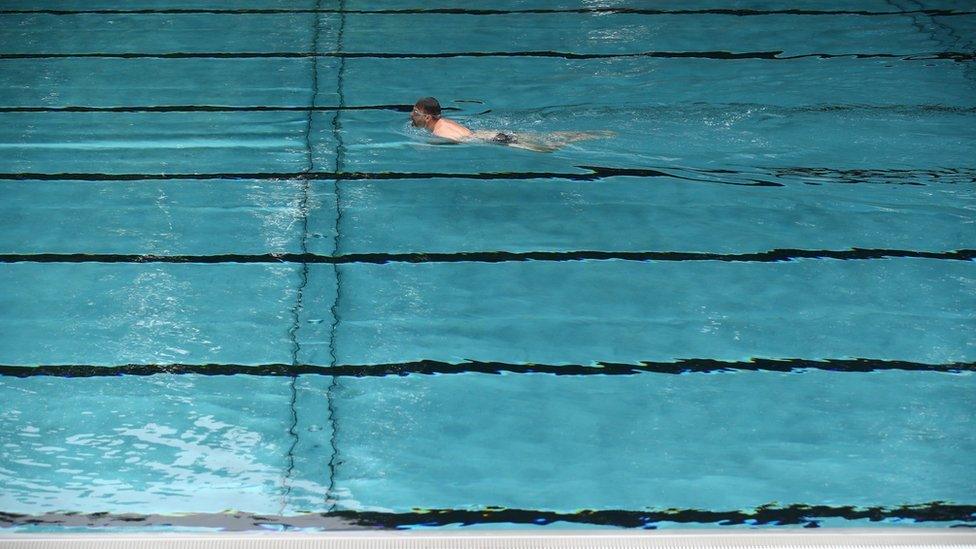
Thea Paraskevaides, 33, is one of those who is desperate to get back in the pool.
She started swimming 18 months ago after a bad ankle injury and relies on the activity as her main form of exercise.
"Aside from the fitness element, it's really important for mental health," she said.
"For me I feel like I need that exercise to help my wellbeing, especially now at such a difficult time."
While she feels confident she would be able to maintain social distancing while swimming, Thea said she would still have some concerns about hygiene around the pool.
"I would have to take hand sanitiser and wipes and clean everything before I touched it," she added.
Louise Zecevic, who used to swim regularly with her children before the lockdown, said she would be happy to put up with any restrictions needed when pools are allowed to reopen.
"If numbers were restricted I would accept that and it might make the swimming experience more pleasant in some ways as the pools near me in London can be massively overcrowded," the 39-year-old said.
"We all love swimming and my kids are constantly asking when we can go back to the pool.
"We've had a paddling pool in the back garden but it's not an activity you can really replicate."
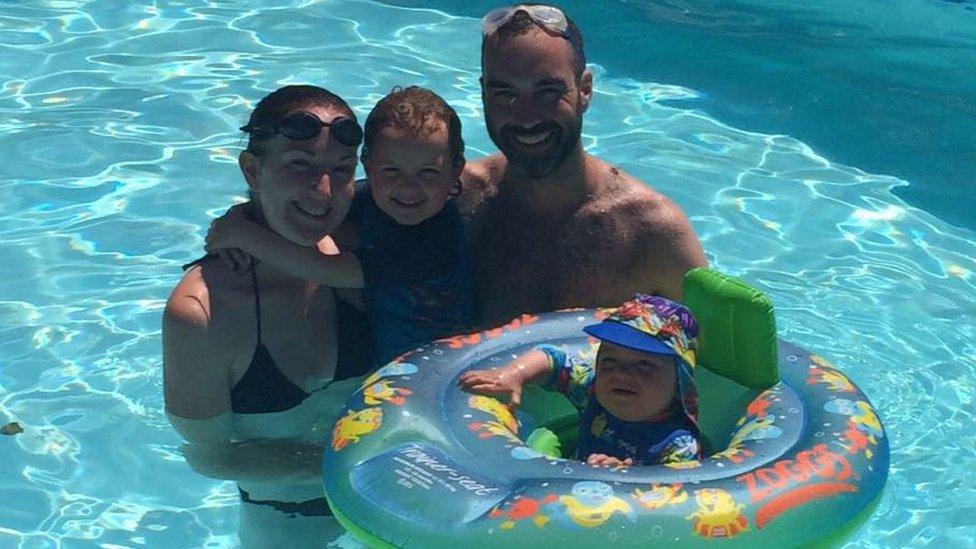
Louise and her family have been missing swimming during the lockdown
Prof Keith Neal, emeritus professor of epidemiology of infectious diseases at the University of Nottingham, said chlorine was "very easily able to inactivate most viruses including Covid-19", but "the main problem will be the social distancing, mostly the changing rooms".
Swim England is working with Public Health England on advice for pools reopening, which will be published on 15 June.
Among the issues which will be covered are water treatment, air circulation and social distancing.
The Swimming Teachers' Association is also liaising with the government on measures for after the lockdown.
Chief executive Dave Candler said there was no "one-size fits all" answer to personal hygiene and social distancing measures for the industry - which would "most likely mean smaller classes in the interim".
- Published1 June 2020

- Attribution
- Published30 May 2020
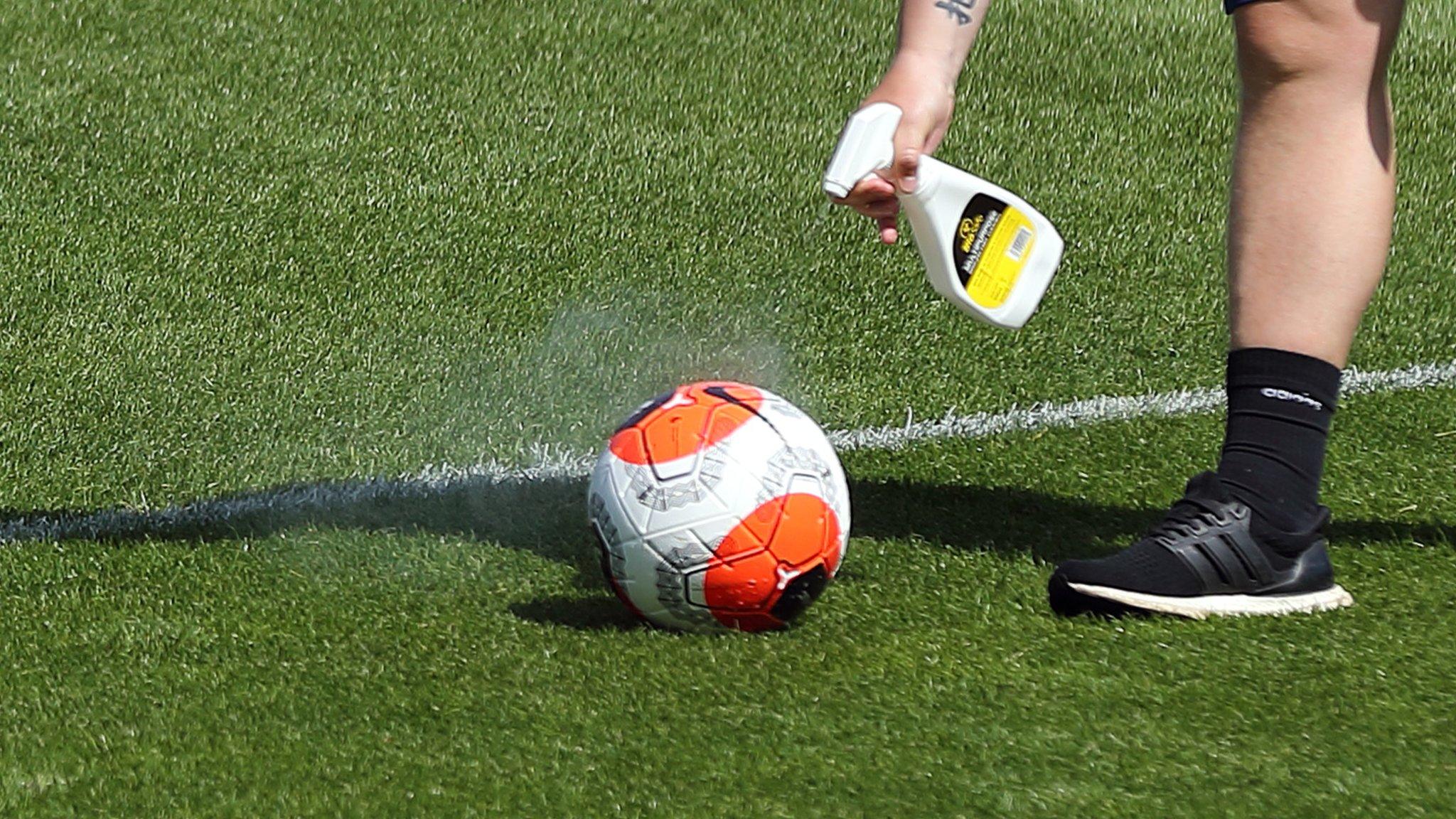
- Published31 May 2020
